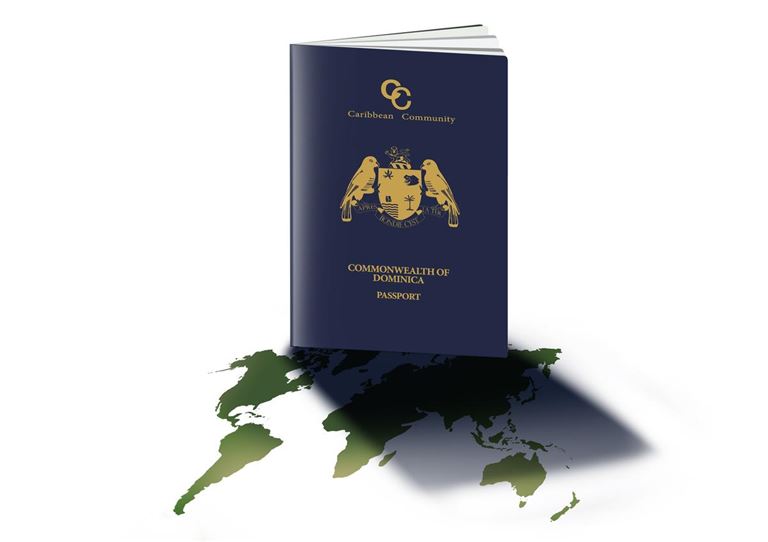

Dominica, a country in the Commonwealth, is taking a significant step towards enhancing its due diligence processes and strengthening cooperation with international stakeholders. On July 17, 2023, Dominica will become the first nation to implement mandatory interviews for all applicants aged 16 and above who are seeking to obtain citizenship through its Citizenship by Investment Programme (CBI). This progressive move aims to mitigate the risks associated with illicit actors and further solidify Dominica's commitment to maintaining a secure and reliable investment environment.
Earlier this year, on February 25, Dominica, along with four other Caribbean countries with CBI programs, engaged in discussions with officials from the United States. Led by the Deputy Assistant Secretary of the US Department of Treasury, the meeting, known as the US-Caribbean Roundtable, focused on addressing the challenges faced by Caribbean CBI programs while exploring opportunities for growth and improvement.
One of the key outcomes of the US-Caribbean Roundtable was the unanimous decision by all participating Caribbean countries to introduce virtual or in-person interviews for each CBI applicant. This important step demonstrates the collective determination to strengthen due diligence practices and enhance the overall integrity of the programs.
As part of the revised application process, which already includes the submission of financial statements, proof of employment, and identification documents, all applicants aged 16 and above will now be required to undergo an interview. The interview will provide an additional layer of scrutiny and ensure a comprehensive evaluation of each applicant's eligibility and intentions.
Dominica has gained widespread recognition for its robust and stringent due diligence processes, which are essential in mitigating risks and protecting the interests of both international investors and local citizens. The country collaborates with renowned due diligence and risk agencies from the United States and the United Kingdom, while receiving support from local and international law enforcement authorities. The due diligence process encompasses thorough document vetting through online and on-the-ground checks, creating a multi-layered approach to risk assessment.
The Caribbean nations with CBI programs have been at the forefront of implementing proactive and transparent due diligence practices. This commitment has significantly enhanced their reputation within the international community, assuring investors that their investments are secure due to the rigorous vetting procedures in place.
CBI programs continue to play a vital role in attracting foreign direct investment to numerous nations, particularly in the Caribbean region. These programs have not only provided a legitimate source of investment but also contributed to the survival and development of Small Island Developing States (SIDS) facing existential threats.
Dominica serves as an exemplary case where funds generated through the CBI program have been strategically allocated. Investments have been directed toward building climate-resilient infrastructure, improving public facilities, and diversifying the economy. The benefits derived from CBI programs are instrumental in bolstering the prosperity and long-term prospects of the participating countries.
While the European Union and the United States have expressed concerns and occasionally threatened to dismantle CBI programs, it is important to acknowledge that such actions would have severe implications for the affected countries. The termination of these programs would lead to detrimental socio-economic consequences and jeopardize the prosperity of the nations involved.
Prime Minister Roosevelt Skerrit emphasized the seriousness of Dominica's commitment to the collective fight against financial system vulnerabilities. The introduction of mandatory interviews represents a risk management framework aimed at strengthening and safeguarding the integrity of Dominica's CBI program.
The US-Caribbean Roundtable brought together distinguished Caribbean leaders, including the Prime Ministers of Antigua and Barbuda, Dominica, Grenada, St Kitts and Nevis, and Saint Lucia. Additionally, representatives from the Eastern Caribbean Central Bank, the Organisation of Eastern Caribbean States, and a delegation from the United States, led by the Deputy Assistant Secretary of the US Department of the Treasury, participated in the discussions.
During the productive sessions, six principles were agreed upon, reflecting the shared vision for the future of CBI programs:
• Collective Agreement on Treatment of Denials: A commitment not to process applications from individuals who have
been denied in another CBI jurisdiction, with proactive information sharing on denials.
• Interviews: Implementation of interviews with applicants, whether conducted virtually or in person.
• Additional Checks: Each jurisdiction will conduct checks on applications with the Financial Intelligence Unit of their
respective country.
• Audits: Regular audits of the CBI programs, either annually or every two years, in accordance with internationally
accepted standards.
• Retrieval of Passports: Seeking law enforcement assistance to retrieve revoked or recalled passports.
• Treatment of Russians and Belarusians: Suspension of processing applications from Russians and Belarusians. All
jurisdictions have already implemented this change.
By adopting these principles, the participating nations demonstrate their dedication to ensuring the transparency, effectiveness, and security of their respective CBI programs.
Dominica's pioneering decision to introduce mandatory interviews for applicants of its Citizenship by Investment Programme signifies a significant milestone in the ongoing efforts to fortify due diligence processes. The collaboration between Caribbean nations and the collective commitment to proactive measures are crucial steps toward maintaining the integrity and sustainability of CBI programs. By enhancing transparency and security, these initiatives reinforce the confidence of international investors, solidify economic growth, and contribute to the overall development of the participating countries.